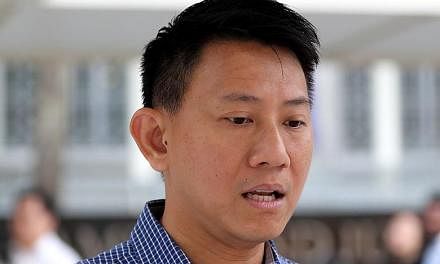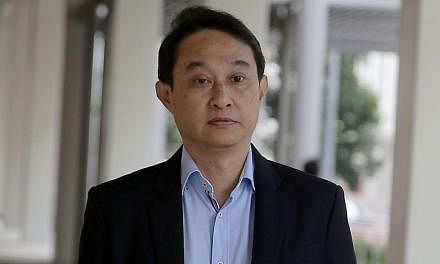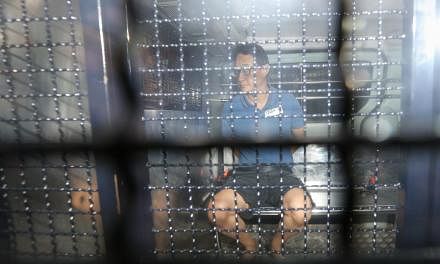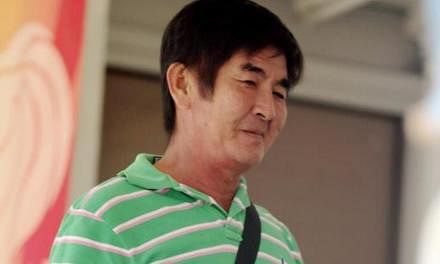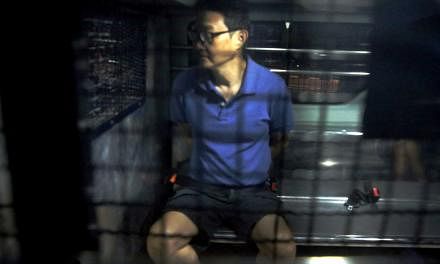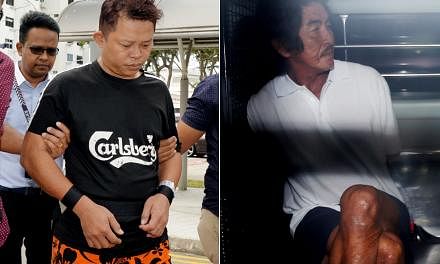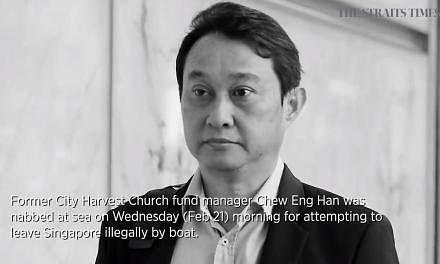SINGAPORE - A five-judge Court of Appeal on Feb 1, 2018, dismissed a bid by prosecutors to reinstate the original convictions for City Harvest Church (CHC) founder Kong Hee and five others convicted of misusing millions of dollars in church funds - ending a marathon case involving the misuse of millions of dollars of CHC funds.
Here is what you need to know about the case:
1. WHO IS INVOLVED?
The six are CHC founder and senior pastor Kong Hee, 54; deputy senior pastor Tan Ye Peng, 46; former finance managers Serina Wee, 42, and Sharon Tan, 43; former fund manager Chew Eng Han, 58, and former finance committee member John Lam, 51.
2. WHAT ARE THEIR JAIL TERMS?
Mr Kong was sentenced to a jail term of 3½ years, the longest sentence of the six. Chew got three years and four months; Mr Tan, three years and two months; Ms Tan, seven months; Ms Wee, 2½ years; and Mr Lam, 1½ years.
Mr Kong was released from jail on Thursday (Aug 22).
Mr Tan, Ms Tan, Ms Wee and Mr Lam have also been released from prison.
Chew, whose jail term was extended by 13 months after he tried unsuccessfully to flee the country, will be the last to complete his sentence.
3. WHAT DID THE SIX DO?
They misappropriated $24 million in CHC's building funds through sham bond investments in music production firm Xtron and glass maker Firna.
They then misused a further $26 million to cover up the initial crime.
These bonds were used to fund the Crossover Project, a church mission to spread the Gospel through the secular music career of Mr Kong's wife, pop singer Ho Yeow Sun.
4. WHAT WERE THEIR ORIGINAL CONVICTIONS AND SENTENCES?
The six were originally charged and convicted of criminal breach of trust (CBT) as agents, under Section 409 of the Penal Code.
They were handed jail terms ranging from 21 months to eight years in November 2015.
5. WAS THERE AN APPEAL, AND WHAT WAS THE OUTCOME?
The six appealed against their convictions and sentences, while the prosecution appealed for harsher sentences.
The prosecution had appealed for sentences ranging from five to 12 years for the six.
Deciding on the appeals in April 2017, the High Court, in a split 2-1 decision, cleared the six of CBT as agents and found them guilty of plain CBT under Section 406 of the Penal Code.
As a result, their jail terms were cut to between seven months and 3½ years.
6. WHAT HAPPENED AFTER THE APPEAL?
The prosecution then applied for a rarely invoked criminal reference, to seek a definitive ruling from the Court of Appeal as well as to reinstate the original convictions.
The prosecution was led by Deputy Attorney-General Hri Kumar Nair in the hearing in August 2017.
7. WHO IS ON THE FIVE-JUDGE PANEL FOR THE CRIMINAL REFERENCE?
The panel includes Judges of Appeal Andrew Phang and Judith Prakash, and Justices Belinda Ang, Quentin Loh and Chua Lee Ming.
8. WHAT IS THE IMPACT OF THE COURT OF APPEAL'S DECISION?
In coming to this decision, the Court of Appeal overruled a 1976 High Court decision, which had held that company directors could be convicted for CBT under Section 409.
This means that the apex court has now ruled that company directors, as well as governing board members or key officers of charities and officers of societies, who commit CBT are only liable to be punished under Section 406.
The offence carries a maximum sentence of seven years' imprisonment.
In contrast, those who commit CBT under Section 409 may face up to 15 years' jail.
In response to the Court of Appeal's decision, the Attorney-General's Chambers said that it would work with relevant government ministries "on the appropriate revisions to the Penal Code, to ensure that company directors and other persons in similar positions of trust and responsibility are subject to appropriate punishments if they commit criminal breach of trust".
9. IS THIS THE END OF THE SAGA?
The criminal cases, yes. The decision of the apex court on Feb 1, 2018, was final and brings the long-running saga to a close.
Criminal investigations into the case began in 2010.
The trial stretched over 142 days, from its start in 2013 to sentencing in November 2015. It is one of the longest criminal cases in history, shorter only than a drug trafficking case in the 1990s that went on for 168 days.
The case is also likely to be the costliest criminal trial here, with legal fees for the six church leaders possibly exceeding $10 million, lawyers had said.


